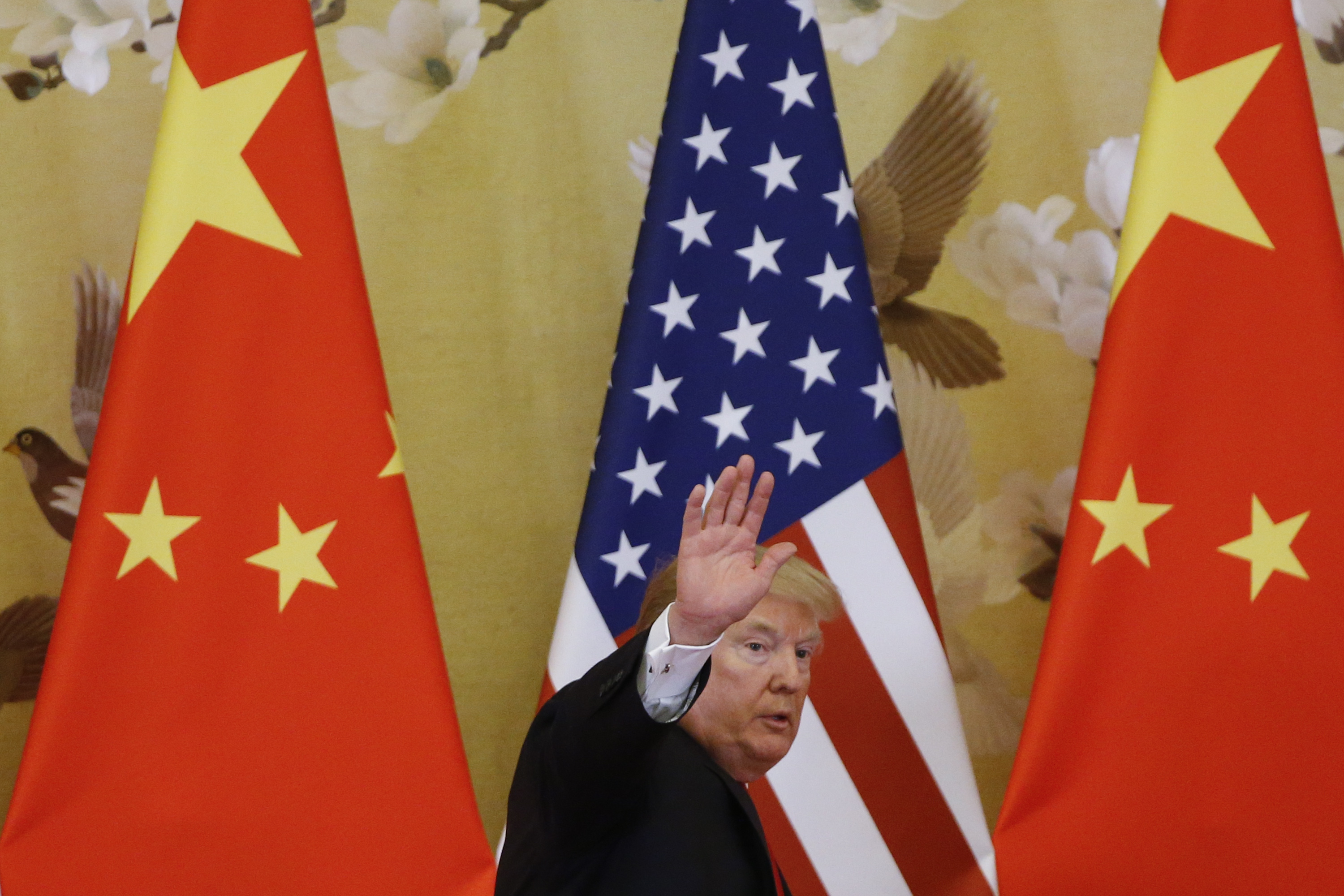Trump's $200 billion mistake
The president has just one economic idea. It's very bad.


A free daily email with the biggest news stories of the day – and the best features from TheWeek.com
You are now subscribed
Your newsletter sign-up was successful
If there's something worse than a U.S. president with no economic ideas, it's got to be a president with just a single economic idea. Lookin' at you, President Trump.
Trump has one really big, all-encompassing idea, and he's had it for decades: Global trade has been terrible for America. But then Trump compounds the error: Tariffs are the easy cure for those terrible trade deficits. As Trump reportedly vented last summer: "I want tariffs. And I want someone to bring me some tariffs."
And now he has them. Lots of them. First there were tariffs — which are import taxes, really — on washing machines and solar panels, then steel and aluminum imports. But the latest round outdoes them all. Trump has threatened a 10 percent tariff on $200 billion in Chinese goods if China goes ahead with retaliatory tariffs against a previous 25 percent tariff on $50 billion in Chinese imports, scheduled to be implemented next month. And if China counters and the escalation continues, there might be tariffs on pretty much everything China sells to the U.S., and pretty much everything the U.S. sells to China, along with other trade restrictions.
The Week
Escape your echo chamber. Get the facts behind the news, plus analysis from multiple perspectives.

Sign up for The Week's Free Newsletters
From our morning news briefing to a weekly Good News Newsletter, get the best of The Week delivered directly to your inbox.
From our morning news briefing to a weekly Good News Newsletter, get the best of The Week delivered directly to your inbox.
So there you have it: The world's two largest economies in an outright trade war, the prospect of which is already unnerving financial markets.
Maybe you're cool with the U.S. and China finally having it out. Maybe you're a self-identifying nationalist who agrees with Trump that it's high time America pushes back against unfair Chinese trade practices — though you're probably more angry about lost factory jobs than the theft of intellectual property and massive state subsidies to favored companies.
Well, fine. The U.S. has some legitimate gripes and has arguably been too passive in pursuing them over the years. But quadrupling down on tariffs is a poor way of achieving better trade relations with China. Even a 10 percent tariff on $500 billion in imports probably isn't enough to force China to substantially change its basic economic model and industrial strategy given the billions it's prepared to invest to achieve technological parity with or even superiority to the West. Nor do broad tariffs accurately target the Chinese companies benefitting from the stolen ideas, forced transfer of technology, and government aid. As my AEI colleague Derek Scissors has put it, "Intellectual property theft and coercion will continue, state-owned enterprises will be subsidized and sheltered, market access will be poor, and trade and foreign investment will function as tools of Chinese industrial policy." All of which is terrible for maintaining public support for trade.
An alternate strategy would be to directly target offending companies with various punishments, as the U.S. did when banning American companies from selling to Chinese telecom giant ZTE for violating U.S. sanctions. Of course, Trump decided to ease the original penalties, and the issue is now being debated in Congress. And there's your problem: Trump remains wrongly obsessed with the bilateral U.S.-China trade deficit, not the nature of Chinese state capitalism. Even modestly changing the former is a multiyear effort of company-by-company actions. There won't be any deal to tweet about before, say, the November midterm elections.
A free daily email with the biggest news stories of the day – and the best features from TheWeek.com
But that's not how America's "Art of the Deal" president rolls. It's hardly unreasonable to view Trump's latest tariff threats as an obvious ploy to get China to sweeten its last bid to avoid tariffs and then declare victory. It's a strategy that might well work. Maybe expect a Chinese offer to buy more stuff — energy, agricultural, and manufactured products — and reduce that trade deficit somewhat. Give Trump some tweetable deliverables. After all, this is the same president that attacked the U.S.-Korea Free Trade Agreement. But the renegotiated deal really didn't change much. Still, Trump tweeted that it was a "a great deal for American and Korean workers." Then there is the North Korea summit, which should also hearten Beijing about Trump's tendency to celebrate style over substance.
But although a superficial deal might be acceptable in the short-term — markets would love it — such an agreement would represent a missed U.S. opportunity to address some real deficiencies in U.S-China trade relations.
James Pethokoukis is the DeWitt Wallace Fellow at the American Enterprise Institute where he runs the AEIdeas blog. He has also written for The New York Times, National Review, Commentary, The Weekly Standard, and other places.
